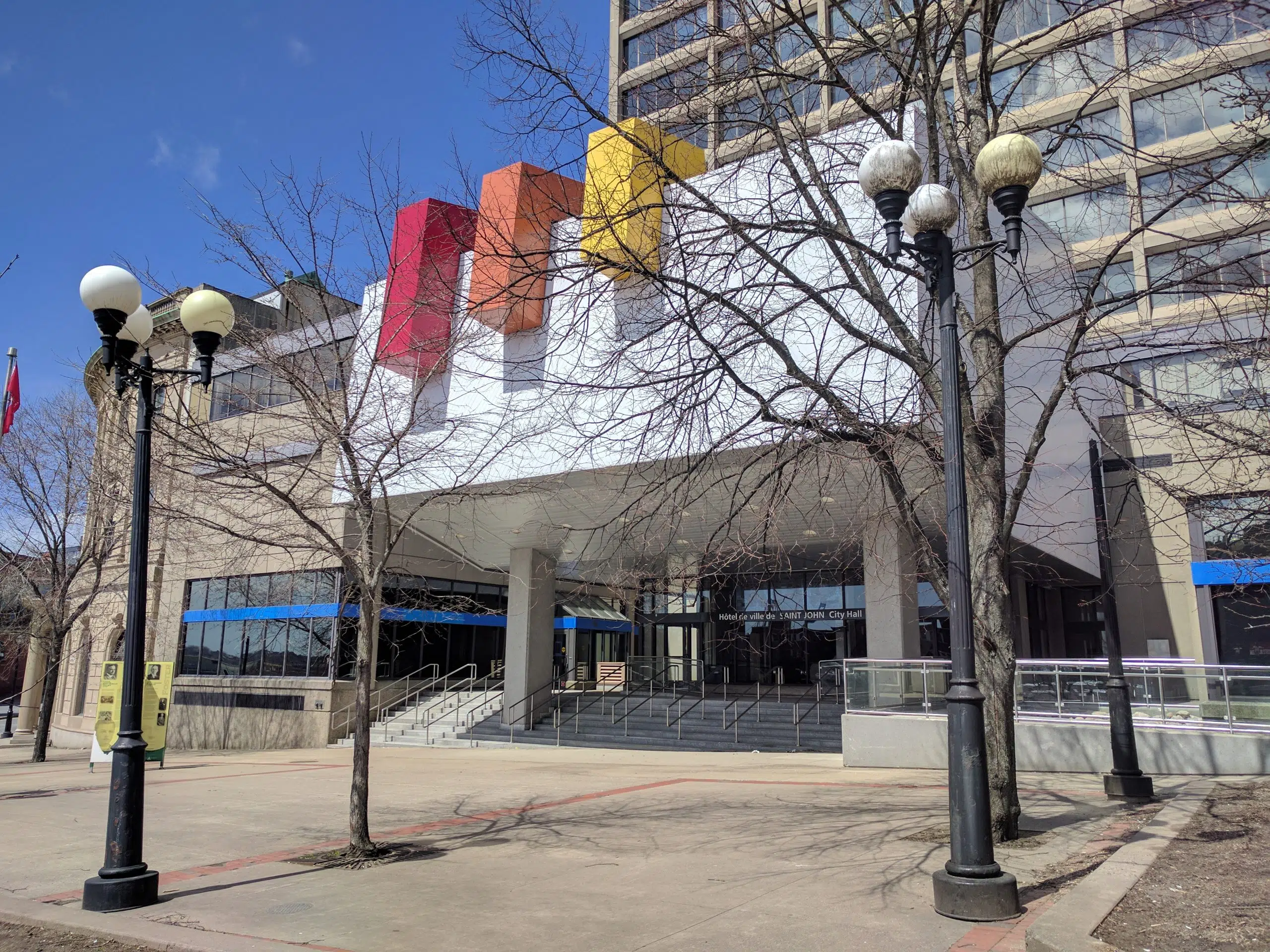
The exterior of Saint John City Hall is pictured in this file photo. (Staff photo)
The year 2020 was one of incredible challenges for Saint John, and the city’s finances were no exception.
First, the COVID-19 pandemic shut down much of the city, and then a cyberattack crippled its IT systems.
Audited financial statements released Thursday show the city ended the year with a $991,000 deficit.
Kevin Fudge, the city’s finance commissioner, said the deficit was “mostly associated” with the impacts of COVID-19.
“But we are very well positioned to absorb that deficit when it rolls into 2022 due to the fact that we’ve got Safe Restart Funding in reserves provided for that very purpose,” Fudge told the city’s finance committee on Thursday.
According to a presentation by senior finance manager Dawn Arbour, revenues were down by $3.6 million compared to what was budgeted.
Arbour told committee members that it was mainly due to lower-than-expected financial assistance from the province.
“We have budgeted about $9.3 million but we only ended up needing about $4.6 million,” she said. “This was offset slightly by property taxes that were $2.1 million over budget due to [Canaport] LNG.”
COVID-19 revenue losses in various categories, such as parking revenue and the accommodation levy, were offset by funds received through the Safe Restart Agreement and the insurance proceeds from the cyberattack, said Arbour.
Overall expenses were also under budget by around $2.6 million last year, which helped to reduce the impact felt by the lower-than-expected revenue.
Wages and expenses were $900,000 over budget, which was mainly attributed to “payroll actuary” adjustments, said Arbour. Goods and services, on the other hand, were undget budget by $2.4 million, largely due to the various spending cuts at the start of the pandemic.
The city’s net debt also fell by $49 million last year to just over $216 million, which Arbour said is another indicator of the city’s “ever-improving financial health.”
“The higher the level of net debt, the more future revenues will be needed to fund past transactions and events,” she said.
Meanwhile, the city’s water and sewer utility fund recorded a surplus of around $969,000.
Overall expenses were down by more than $2.1 million, while the utility was able to transfer $1.2 million into its reserves.







